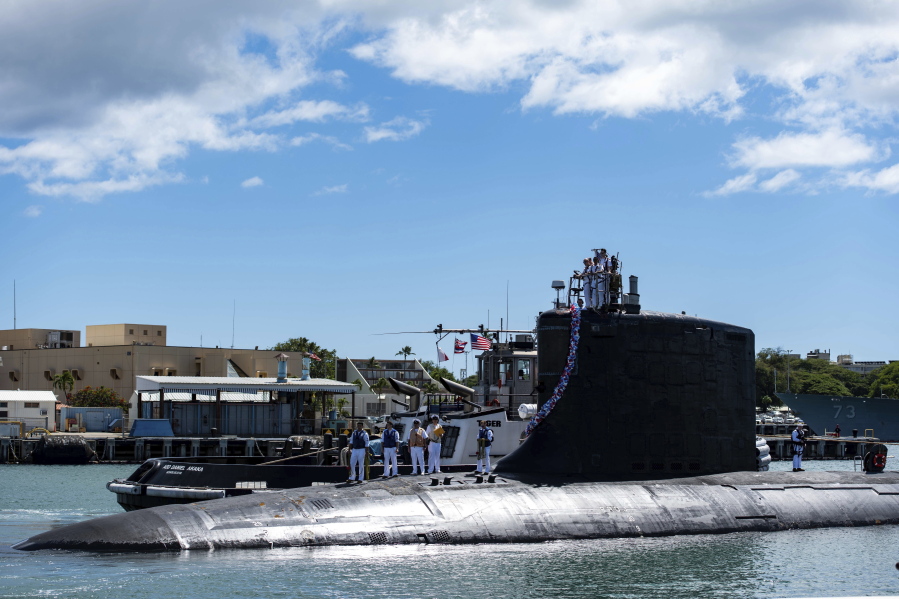CANBERRA, Australia — Australia has canceled a contract with France for conventional submarines and instead will build nuclear-powered submarines using U.S. technology because of changing strategic conditions in the region, Prime Minister Scott Morrison said Thursday.
President Joe Biden announced on Wednesday a new U.S. security alliance with Australia and Britain that will help equip Australia with a nuclear submarine fleet.
The agreement would make Australia the first country without nuclear weapons to obtain nuclear-powered submarines.
Morrison said U.S. nuclear submarine technology wasn’t available to Australia in 2016 when it entered a $43 billion deal with France to build 12 of the world’s largest conventional diesel-electric submarines. The United States has previously only shared the technology with Britain.
Biden did not mention China by name in announcing the new security alliance, but it is likely to be seen as a provocative move by Beijing, whose military strength and influence have grown rapidly.
Peter Jennings, head of the Australian Strategic Policy Institute think tank, said Australia’s decision to acquire nuclear submarines was a response to China’s increasing military might, aggressive bullying of Australia and intimidation of Japan and Taiwan.
“We should call the first submarine in this new category the ‘Xi Jinping,’ because no person is more responsible for Australia going down this track than the current leader of the Chinese Communist Party,” Jennings said.
Australia notified France that it will end its contract with DCNS, a majority state-owned company, to build the conventional submarines. Australia has spent $1.8 billion on the project since 2016. The first of the French-designed submarines was to have been delivered in 2027.
French Foreign Minister Jean-Yves Le Drian expressed “total incomprehension” at the decision and criticized both Australia and the United States.
“It was really a stab in the back. We built a relationship of trust with Australia, and this trust was betrayed,” Le Drian said Thursday on France-Info radio.
Morrison said he told French President Emanuel Macron in June that there were “very real issues about whether a conventional submarine capability” would address Australia’s strategic security needs in the Indo-Pacific.
“Of course they’re disappointed,” Morrison said. “They’ve been good partners. This is about our strategic interest, our strategic capability requirements and a changed strategic environment and we’ve had to take that decision.”
Unlike nuclear-powered submarines, conventional subs that are traveling long distances must spend time on the surface, where they are most vulnerable, using their diesel engines while they recharge their batteries. The batteries propel them underwater.
Morrison said he expects the first of the nuclear subs, which are to be constructed in the Australian city of Adelaide, will be built by 2040.
He said Australia hasn’t decided which class of nuclear submarines it will select and does not know how much the fleet of at least eight submarines will cost. But the country’s defense budget will grow above the current 2.2 percent of gross domestic product, he said.



